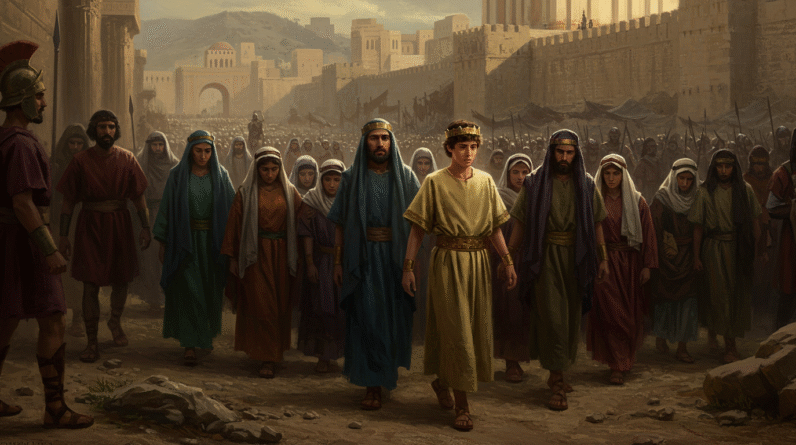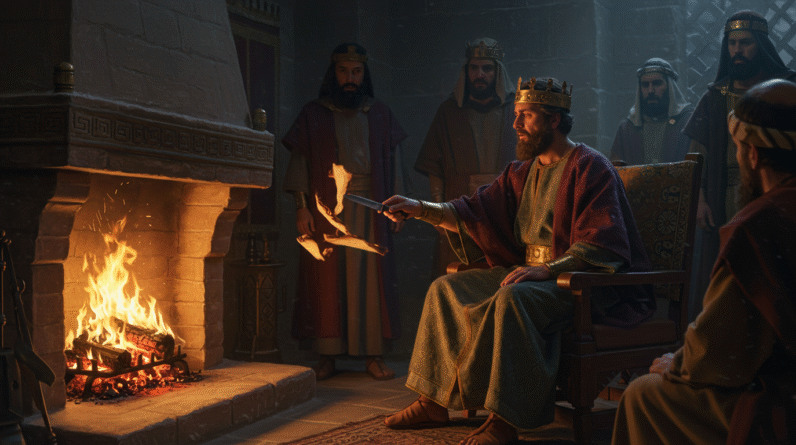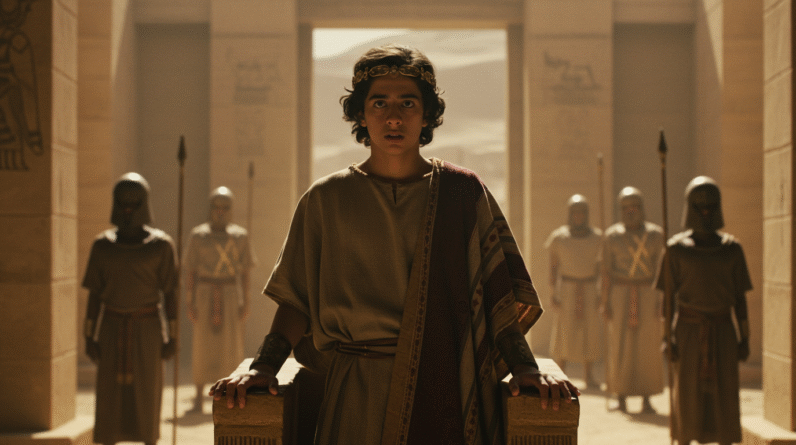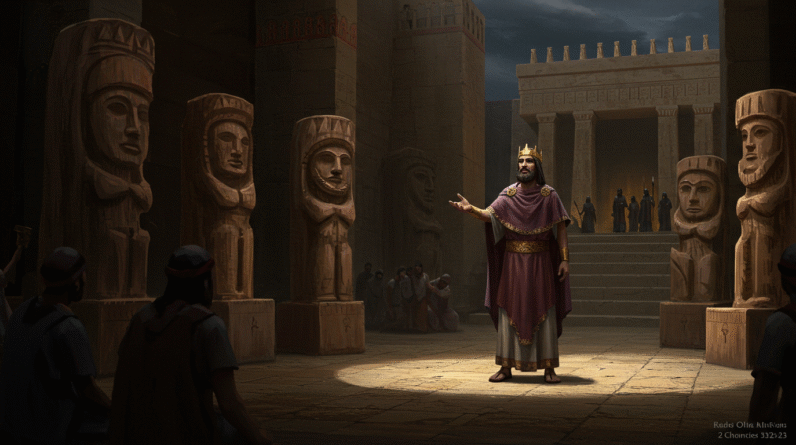King Hezekiah’s Revival: Returning A Nation To God
There’s something compelling about the account of King Hezekiah, a man who managed to breathe spiritual life back into a nation that had lost its way. Imagine being part of a community that feels disconnected from its roots, its beliefs, and its sense of purpose. King Hezekiah took on the monumental task of restoring the people of Judah to their true faith, leading what can only be described as an earnest revival. His journey offers plenty of inspiration for us today as we seek our own paths to renewal. So, grab a warm drink, get comfortable, and let’s delve into the story of King Hezekiah’s revival.
The Context of King Hezekiah’s Times
Before delving into the events of King Hezekiah’s reign, it’s crucial to grasp the atmosphere of his period. Hezekiah reigned in Judah during a time when idolatry and secular influence were at their peak. His father, King Ahaz, had been rather notorious for abandoning the ways of worship that were central to their tradition. Instead, Ahaz embraced various forms of idolatry, even closing the doors of the Temple in Jerusalem, effectively severing the people’s connection to their God. The scene had been grim, setting the stage for Hezekiah’s dramatic entrance.
When Hezekiah ascended the throne, he was just 25 years old—a young man facing the monumental task of reinvigorating a nation’s faith. The people under his rule had become accustomed to living in spiritual darkness, where foreign gods were revered and their own traditions nearly forgotten. It’s almost like stepping into a cluttered attic and struggling to find a family heirloom amidst the chaos. Against this backdrop, King Hezekiah embarked on his mission to restore the nation’s relationship with God.
King Hezekiah’s Immediate Actions
Immediately upon taking the throne, King Hezekiah began to enact reforms that would set the tone for his reign. His first task involved cleaning and reopening the Temple doors, an act symbolizing a return to the community’s spiritual roots. It sounds simple, yet the message was profound: The Temple would once again become the epicenter of their faith and lives. King Hezekiah understood that tangible changes were necessary to provoke internal shifts.
Hezekiah didn’t stop at merely reopening the Temple; he also mobilized the priests and Levites, urging them to consecrate themselves anew. They needed to be spiritually ready to guide the people back to righteousness. Hezekiah’s rallying cry can be found in 2 Chronicles 29:11: “My sons, do not be negligent now, for the Lord has chosen you to stand before him and serve him…”. He was effectively saying, “Let’s get our act together, for this is a collective endeavor.”
Restoring True Worship
In the hustle and bustle of modern life, the concept of ‘true worship’ can sometimes seem elusive, but in Hezekiah’s time, it was about returning to practices rooted in sincerity. King Hezekiah recognized that to inspire true worship, the rites and rituals long abandoned needed to be reinstated. Under his watch, sacrificial ceremonies resumed, and music filled the Temple once more—activities vital for a culture centered on worship.
Notably, the Passover festival, a significant religious celebration that had fallen by the wayside during his father’s reign, was reinstated. In 2 Chronicles 30:1, it’s recorded that Hezekiah “sent word to all Israel and Judah and also wrote letters to Ephraim and Manasseh, inviting them to come to the temple of the Lord in Jerusalem and celebrate the Passover to the Lord, the God of Israel.” Hezekiah’s efforts illustrate his intention to unify the people through shared worship and spiritual experiences. It’s akin to organizing a grand family reunion that helps strengthen familial bonds.
Overcoming Challenges and Opposition
No significant change comes without its set of challenges, and King Hezekiah’s revival was no exception. Despite his deep convictions, Hezekiah faced skepticism and opposition from those who had grown comfortable with the status quo of idolatry and secularism. It’s a classic tale of old habits dying hard. The reforms required not just spiritual focus but political acumen as well.
Yet, Hezekiah remained steadfast. In 2 Kings 18:5, we learn that “He trusted in the Lord God of Israel; so that after him was none like him among all the kings of Judah, nor any that were before him.” His unwavering faith and trust in divine guidance empowered him to push through the hurdles and resistance, illustrating how true leadership involves both vision and resilience.
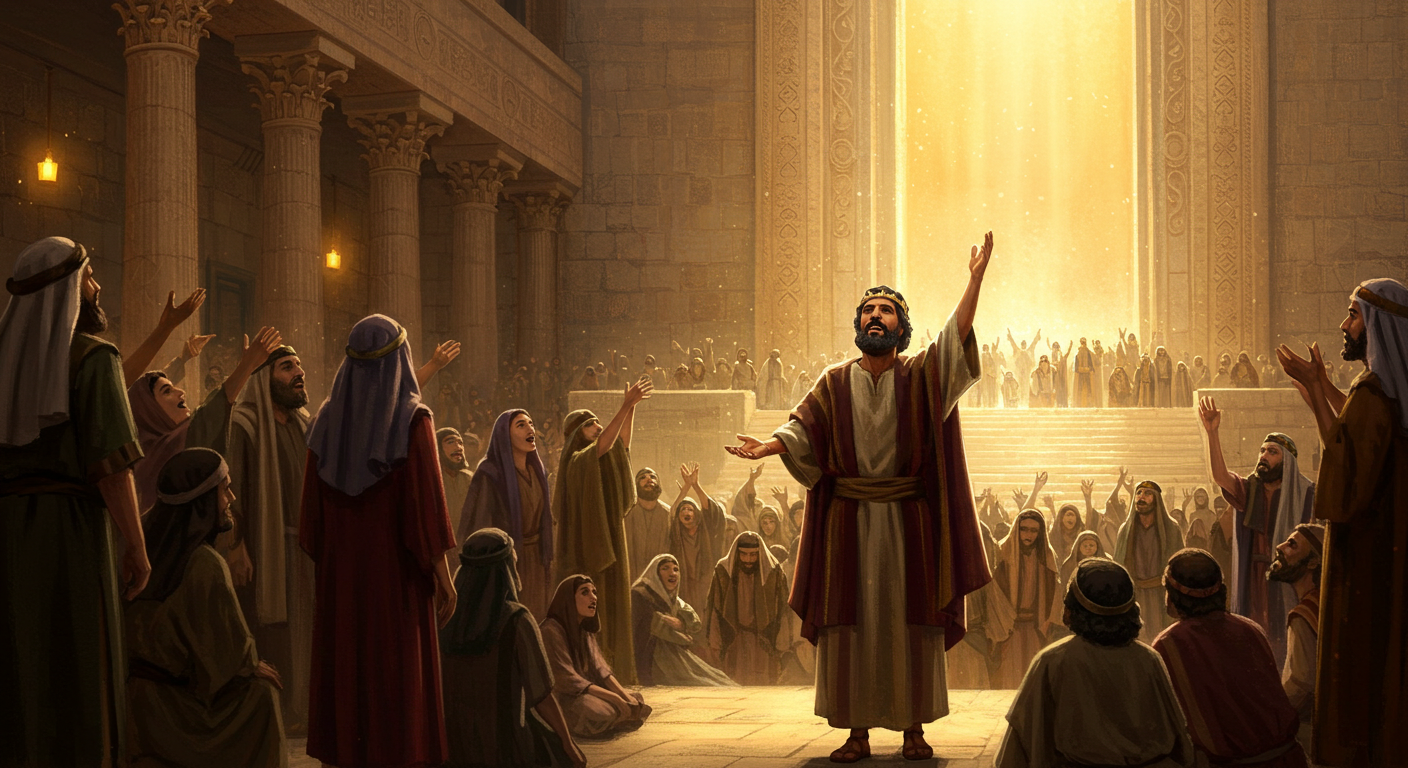
The Resulting Transformation in Judah
The revival led by King Hezekiah resulted in tangible changes to the spiritual and social landscape of Judah. The religious zeal that had been ignited translated into a newfound sense of community and social order. People returned to a lifestyle that was more aligned with the values that their ancestors had held dear.
Hezekiah’s administration saw the removal of high places, sacred stones, and wooden images associated with foreign gods. This physical cleansing of the land symbolized a deeper, inward cleansing of the people’s hearts. It’s as though they were clearing away the debris in a garden to let the sun nourish the new growth.
In 2 Chronicles 31:21, it is noted that “He was successful in everything he undertook, for he sought his God and worked wholeheartedly. And so he prospered.” This prosperity was not just spiritual but also material, reflecting the symbiotic relationship between faithfulness and well-being.
Lessons for Current Times
What does King Hezekiah’s revival have to say to us in the complexities of the 21st century? For one, it serves as a reminder that true renewal often starts small—a simple reopening of doors, a reinstitution of practice, a communal feast. It teaches us that sometimes, returning to the essence of who we are can provide the clarity we need to move forward.
In our fast-paced world, it’s easy to lose sight of what grounds us. Hezekiah’s revival illustrates the power of deliberate, faithful action combined with collective effort. His story encourages us to find balance, where worship and everyday life coexist harmoniously, drawing us closer to true purpose.
The Importance of Community in Revival
A key aspect of King Hezekiah’s revival was the sense of community it fostered among the people. Revival wasn’t a solo effort; it was a communal resurgence in faith and action. The reinstatement of the Passover and other communal activities played a crucial role in binding the people together around a shared cause and belief system.
Community is often at the heart of any spiritual revival. It’s like rowing a boat; everyone needs to paddle in the same direction for the journey to be successful. Hezekiah’s endeavor to reconnect the people highlights the impact of unity in achieving substantial change. He understood that revival was more than a set of individual awakenings; it was about creating a shared experience that called everyone to participate.
Modern Strategies for Personal Revival
Though King Hezekiah’s story is rooted in ancient times, his strategies for revival offer relevant insights for your personal spiritual journey. You don’t need to be a king to experience renewal. Like Hezekiah, start with the basics: reopen the metaphorical doors you might have closed to your spiritual practices. Whether it’s returning to a morning ritual of meditation, reading scriptures, or participating in community worship, small steps can lead to meaningful transformation.
By removing the idols of modern distractions—be it excessive screen time or relentless work pressures—you can foster an environment conducive to personal growth and clarity. Just as Hezekiah looked to the past for practices that aligned with true worship, it might serve you well to reflect on activities that once nourished your spirit and find ways to reintroduce them into your life.
Conclusion: A Call to Action
King Hezekiah’s revival underscores the timeless truth that renewal is possible, even when circumstances seem bleak. Whether you’re searching for your revival in faith, community, or personal life, the principles of openness, dedication, and collective involvement are key. Much like Hezekiah, let’s seize the opportunity to turn back to the core essentials that define us and propel us forward.
If King Hezekiah’s journey resonates with you, take a moment to reflect: What doors in your life need reopening? What idols need clearing away? What collective experiences can you re-initiate or join? Revival is not just a historical event; it is a living opportunity at your fingertips.
Explore More
For further reading and encouragement, check out these posts:
👉 7 Bible Verses About Faith in Hard Times
👉 Job’s Faith: What We Can Learn From His Trials
👉 How To Trust God When Everything Falls Apart
👉 Why God Allows Suffering – A Biblical Perspective
👉 Faith Over Fear: How To Stand Strong In Uncertain Seasons
👉 How To Encourage Someone Struggling With Their Faith
👉 5 Prayers for Strength When You’re Feeling Weak

📘 Jesus and the Woman Caught in Adultery – Grace and Mercy Over Judgement
A powerful retelling of John 8:1-11. This book brings to life the depth of forgiveness, mercy, and God’s unwavering love.
👉 Check it now on Amazon
As a ClickBank Affiliate, I earn from qualifying purchases.
Acknowledgment: All Bible verses referenced in this article were accessed via Bible Gateway (or Bible Hub).
“Want to explore more? Check out our latest post on Why Jesus? and discover the life-changing truth of the Gospel!”




